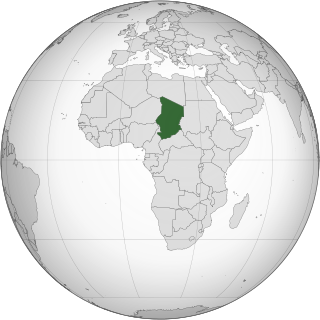
Lesbian, gay, bisexual, and transgender (LGBT) people in Chad face legal challenges not experienced by non-LGBTQ residents. Both male and female forms of same-sex sexual activity are illegal in the country. Before the new penal code took effect in August 2017, homosexual activity between adults had never been criminalised. There is no legal protection against discrimination based on sexual orientation and gender identity.

Lesbian, gay, bisexual, and transgender (LGBT) people in Nigeria face severe challenges not experienced by non-LGBTQ residents. LGBT rights are generally infringed upon; both male and female expressions of homosexuality are illegal in Nigeria and punishable by up to 14 years of prison in the conventional court system. There is no legal protection for LGBT rights in Nigeria—a largely conservative country of more than 230 million people, split between a mainly Muslim north and a mainly Christian south. Very few LGBT persons are open about their sexual orientation, as violence against them is frequent. According to PinkNews, Nigerian authorities generally target the LGBT community. Many LGBT Nigerians are fleeing to countries with progressive law to seek protection.

The age of consent in Africa for sexual activity varies by jurisdiction across the continent, codified in laws which may also stipulate the specific activities that are permitted or the gender of participants for different ages. Other variables may exist, such as close-in-age exemptions.
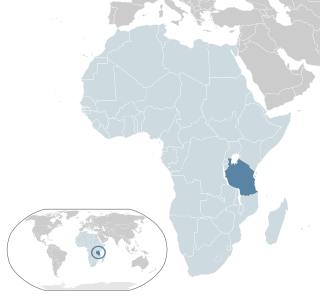
Lesbian, gay, bisexual, and transgender (LGBT) people in Tanzania face severe challenges not experienced by non-LGBTQ residents. Homosexuality in Tanzania is a socially taboo topic, and same-sex sexual acts are criminal offences, punishable with life imprisonment. The law also criminalises heterosexuals who engage in oral sex and anal intercourse.

Lesbian, gay, bisexual, and transgender (LGBT) people in the Gambia face significant challenges not experienced by non-LGBT residents. Same-sex sexual activity is illegal for both men and women in the Gambia. Criminalisation commenced under the colonial rule of the British. The 1933 Criminal Code provides penalties of prison terms of up to fourteen years. In 2014, the country amended its code to impose even harsher penalties of life imprisonment for "aggravated" cases. The gender expression of transgender individuals is also legally restricted in the country. While the United States Department of State reports that the laws against homosexual activity are not "actively enforced", arrests have occurred; the NGO Human Rights Watch, reports regular organised actions by law enforcement against persons suspected of homosexuality and gender non-conformity.
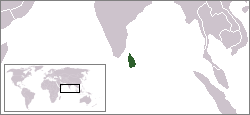
Lesbian, gay, bisexual, and transgender (LGBT) people in Sri Lanka face significant challenges not experienced by non-LGBT residents.
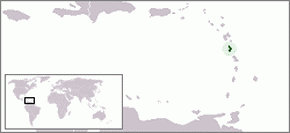
Lesbian, gay, bisexual, and transgender (LGBT) people in Dominica face legal challenges not experienced by non-LGBTQ residents. Homosexuality has been legal since 2024, when the High Court struck down the country's colonial-era sodomy law. Dominica provides no recognition to same-sex unions, whether in the form of marriage or civil unions, and no law prohibits discrimination on the basis of sexual orientation or gender identity.

Lesbian, gay, bisexual, and transgender (LGBT) people in Guinea face legal challenges not experienced by non-LGBTQ residents. Both male and female expressions of same-sex sexual activity are illegal in Guinea, and discriminatory attitudes towards LGBT people are generally tolerated in the nation.

Lesbian, gay, bisexual, and transgender (LGBT) people in Malawi face legal challenges not experienced by non-LGBTQ residents. Both male and female expressions of same-sex sexual activity are illegal within the nation. The Penal Code prohibits "carnal knowledge against the order of nature", attempts to commit "carnal knowledge against the order of nature", and acts of "gross indecency". Homosexuality among men is punishable by up to 14 years in prison in the country, while homosexuality among women is also punishable by up to five years in prison. There are no protections for LGBT rights in the country.

Lesbian, gay, bisexual, and transgender (LGBT) people in Zambia face significant challenges not experienced by non-LGBTQ residents. Same-sex sexual activity is illegal for both men and women in Zambia. Formerly a colony of the British Empire, Zambia inherited the laws and legal system of its colonial occupiers upon independence in 1964. Laws concerning homosexuality have largely remained unchanged since then, and homosexuality is covered by sodomy laws that also proscribe bestiality. Social attitudes toward LGBT people are mostly negative and coloured by perceptions that homosexuality is immoral and a form of insanity. However, in recent years, younger generations are beginning to show positive and open minded attitudes towards their LGBT peers.

A sodomy law is a law that defines certain sexual acts as crimes. The precise sexual acts meant by the term sodomy are rarely spelled out in the law, but are typically understood and defined by many courts and jurisdictions to include any or all forms of sexual acts that are illegal, illicit, unlawful, unnatural and immoral. Sodomy typically includes anal sex, oral sex, manual sex, and bestiality. In practice, sodomy laws have rarely been enforced to target against sexual activities between individuals of the opposite sex, and have mostly been used to target against sexual activities between individuals of the same sex.

Lesbian, gay, bisexual, and transgender (LGBT) persons in Antigua and Barbuda may face legal challenges not experienced by non-LGBTQ citizens.
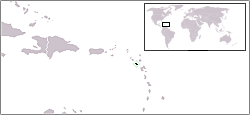
Lesbian, gay, bisexual, and transgender (LGBT) persons in Montserrat face legal challenges not experienced by non-LGBTQ residents. Same-sex sexual activity has been legal in Montserrat since 2001.
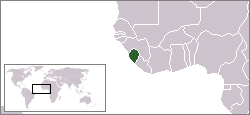
Lesbian, gay, bisexual, and transgender (LGBT) people in Sierra Leone face legal challenges not experienced by non-LGBTQ residents. Male same-sex sexual activity is illegal in Sierra Leone and carries a possible penalty of life imprisonment, although this law is seldom enforced.

Lesbian, gay, bisexual, and transgender (LGBT) people in Niue face legal challenges not experienced by non-LGBTQ residents. Male same-sex sexual activity is illegal in Niue, although there is no recent instance of it being actively prosecuted. Same-sex couples and households headed by same-sex couples are not eligible for the same legal protections available to opposite-sex married couples.

Lesbian, gay, bisexual and transgender (LGBT) people in Saint Vincent and the Grenadines face legal challenges not experienced by non-LGBT residents. The Penal Code makes same-sex sexual acts illegal with a punishment up to 10 years in prison, although the law is not enforced. In addition, it outlaws the practice of "buggery", whether homosexual or heterosexual and irrespective of whether the act was consensual. The country's laws also do not address discrimination or harassment on account of sexual orientation or gender identity, nor recognize same-sex unions in any form, whether it be marriage or partnerships. Households headed by same-sex couples are not eligible for any of the same rights given to opposite-sex married couples. In 2024, Saint Vincent and the Grenadines upheld its constitutional ban on same-sex sexual activity within its High Court.
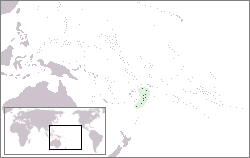
Lesbian, gay, bisexual, and transgender (LGBT) people in Tonga face legal challenges not experienced by non-LGBT residents. Male homosexuality is illegal in Tonga, with a maximum penalty of 10 years imprisonment, but the law is not enforced.
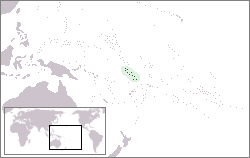
Lesbian, gay, bisexual, and transgender (LGBT) people in Tuvalu face legal difficulties not experienced by non-LGBT residents. Sections 153, 154 and 155 of the Penal Code outlaw male homosexual intercourse with a penalty of up to 14 years in prison, but the law is not enforced. Employment discrimination on the basis of sexual orientation has been banned since 2017. Since 2023, the Constitution of Tuvalu has banned same-sex marriage.
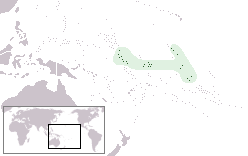
Lesbian, gay, bisexual, and transgender (LGBT) people in Kiribati face legal challenges not experienced by non-LGBT residents. Male homosexuality is illegal in Kiribati with a penalty of up to 14 years in prison, but the law is not enforced. Female homosexuality is legal, but lesbians may face violence and discrimination. Despite this, employment discrimination on the basis of sexual orientation has been prohibited since 2015.
Article 365 of the Sri Lankan Penal Code criminalizes "carnal intercourse against the order of nature" and provides for a penalty of up to ten years in prison.

![Recognition of same-sex unions in the Lesser Antilles and Puerto Rico
.mw-parser-output .legend{page-break-inside:avoid;break-inside:avoid-column}.mw-parser-output .legend-color{display:inline-block;min-width:1.25em;height:1.25em;line-height:1.25;margin:1px 0;text-align:center;border:1px solid black;background-color:transparent;color:black}.mw-parser-output .legend-text{}
Same-sex marriage
Unregistered cohabitation
Island subject to IACHR ruling
No recognition of same-sex couples
Constitutional ban on same-sex marriage
Same-sex sexual activity illegal but penalties not enforced
.mw-parser-output .hlist dl,.mw-parser-output .hlist ol,.mw-parser-output .hlist ul{margin:0;padding:0}.mw-parser-output .hlist dd,.mw-parser-output .hlist dt,.mw-parser-output .hlist li{margin:0;display:inline}.mw-parser-output .hlist.inline,.mw-parser-output .hlist.inline dl,.mw-parser-output .hlist.inline ol,.mw-parser-output .hlist.inline ul,.mw-parser-output .hlist dl dl,.mw-parser-output .hlist dl ol,.mw-parser-output .hlist dl ul,.mw-parser-output .hlist ol dl,.mw-parser-output .hlist ol ol,.mw-parser-output .hlist ol ul,.mw-parser-output .hlist ul dl,.mw-parser-output .hlist ul ol,.mw-parser-output .hlist ul ul{display:inline}.mw-parser-output .hlist .mw-empty-li{display:none}.mw-parser-output .hlist dt::after{content:": "}.mw-parser-output .hlist dd::after,.mw-parser-output .hlist li::after{content:" * ";font-weight:bold}.mw-parser-output .hlist dd:last-child::after,.mw-parser-output .hlist dt:last-child::after,.mw-parser-output .hlist li:last-child::after{content:none}.mw-parser-output .hlist dd dd:first-child::before,.mw-parser-output .hlist dd dt:first-child::before,.mw-parser-output .hlist dd li:first-child::before,.mw-parser-output .hlist dt dd:first-child::before,.mw-parser-output .hlist dt dt:first-child::before,.mw-parser-output .hlist dt li:first-child::before,.mw-parser-output .hlist li dd:first-child::before,.mw-parser-output .hlist li dt:first-child::before,.mw-parser-output .hlist li li:first-child::before{content:" (";font-weight:normal}.mw-parser-output .hlist dd dd:last-child::after,.mw-parser-output .hlist dd dt:last-child::after,.mw-parser-output .hlist dd li:last-child::after,.mw-parser-output .hlist dt dd:last-child::after,.mw-parser-output .hlist dt dt:last-child::after,.mw-parser-output .hlist dt li:last-child::after,.mw-parser-output .hlist li dd:last-child::after,.mw-parser-output .hlist li dt:last-child::after,.mw-parser-output .hlist li li:last-child::after{content:")";font-weight:normal}.mw-parser-output .hlist ol{counter-reset:listitem}.mw-parser-output .hlist ol>li{counter-increment:listitem}.mw-parser-output .hlist ol>li::before{content:" "counter(listitem)"\a0 "}.mw-parser-output .hlist dd ol>li:first-child::before,.mw-parser-output .hlist dt ol>li:first-child::before,.mw-parser-output .hlist li ol>li:first-child::before{content:" ("counter(listitem)"\a0 "}
.mw-parser-output .navbar{display:inline;font-size:88%;font-weight:normal}.mw-parser-output .navbar-collapse{float:left;text-align:left}.mw-parser-output .navbar-boxtext{word-spacing:0}.mw-parser-output .navbar ul{display:inline-block;white-space:nowrap;line-height:inherit}.mw-parser-output .navbar-brackets::before{margin-right:-0.125em;content:"[ "}.mw-parser-output .navbar-brackets::after{margin-left:-0.125em;content:" ]"}.mw-parser-output .navbar li{word-spacing:-0.125em}.mw-parser-output .navbar a>span,.mw-parser-output .navbar a>abbr{text-decoration:inherit}.mw-parser-output .navbar-mini abbr{font-variant:small-caps;border-bottom:none;text-decoration:none;cursor:inherit}.mw-parser-output .navbar-ct-full{font-size:114%;margin:0 7em}.mw-parser-output .navbar-ct-mini{font-size:114%;margin:0 4em}html.skin-theme-clientpref-night .mw-parser-output .navbar li a abbr{color:var(--color-base)!important}@media(prefers-color-scheme:dark){html.skin-theme-clientpref-os .mw-parser-output .navbar li a abbr{color:var(--color-base)!important}}@media print{.mw-parser-output .navbar{display:none!important}}
v
t
e Same-sex legislation Lesser Antilles (named).svg](http://upload.wikimedia.org/wikipedia/commons/thumb/d/dd/Same-sex_legislation_Lesser_Antilles_%28named%29.svg/280px-Same-sex_legislation_Lesser_Antilles_%28named%29.svg.png)


















